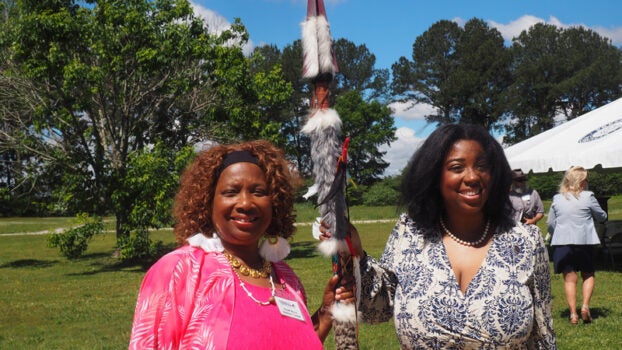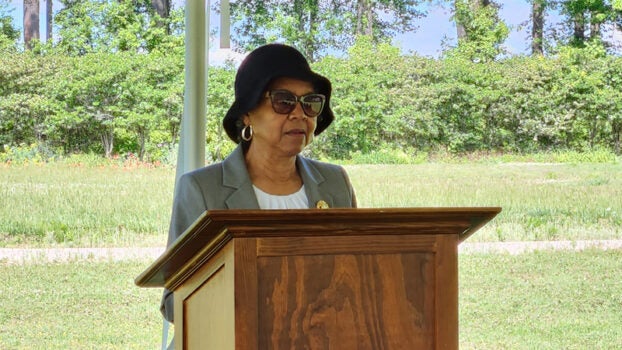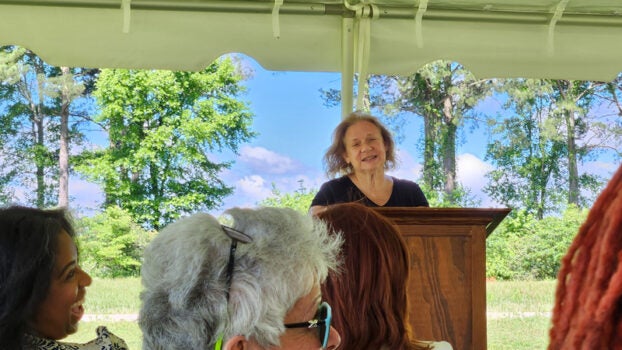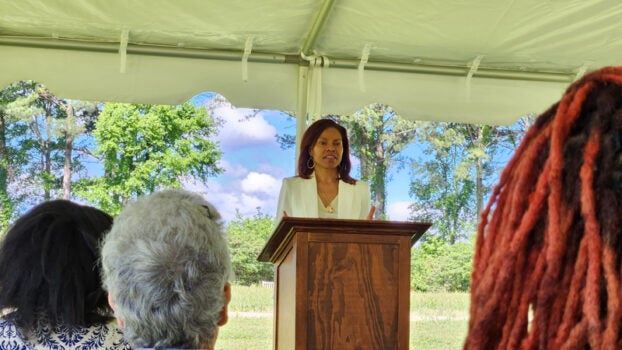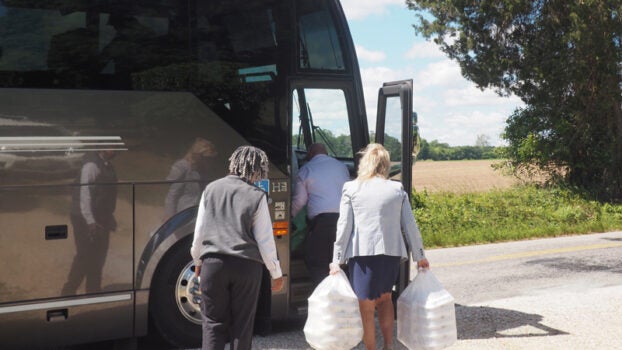Surry debuts driving tour highlighting Black, indigenous history
Published 4:14 pm Thursday, May 16, 2024
In 1860, a year before the start of the Civil War, over a third of Surry County’s African American population had already been freed from slavery under a 78-year-old, circa-1782 Virginia General Assembly law.
It’s not something Bacon’s Castle District Supervisor Walter Hardy Jr. learned from a textbook as a product of the county’s public school system. He stumbled across the information years later from Preservation Virginia, the nonprofit organization that owns and maintains the circa-1665 Bacon’s Castle homestead.
Hardy was one of several speakers at the May 16 launch of Surry’s cultural trail, a driving tour of 29 historic sites throughout the county that aims to highlight overlooked stories of Black and indigenous county residents.
The trail is the brainchild of Surry’s VA250 Committee, a 16-member chapter of the Virginia American Revolution 250 Commission. The statewide body formed in 2020 to plan Virginia’s 2025 commemoration of the 250th anniversary of the Revolutionary War, which began on April 19, 1775, with an exchange of gunfire between American colonists and British troops in Massachusetts.
“The first colonists arrived in Virginia,” states VA250’s website. “The first encounters with indigenous peoples occurred here. The first ships carrying the enslaved landed here. The first representative government was formed here. The famous speeches, critical debates and major events that led to the movement for independence and sparked a revolution happened here.”
“You can’t change history,” but “sometimes people don’t say everything that should be said about history,” said Surry VA250 Committee member Gloria Howell Mason.
The trail includes new perspectives on well-known historic sites like Chippokes State Park, whose history dates back centuries before the circa-1854 Jones-Stewart antebellum plantation mansion. Chippokes is, in fact, named for Choapoke, an Algonquin chief. According to its trail listing, Chippokes was home for hundreds of years to the Quiyoughcohannock tribe prior to 1619.
Also on the list is Mount Nebo Baptist Church, an active congregation that traces its roots to 1865 when the Freedmen’s Bureau in Philadelphia, Pennsylvania, sent Amelia Howard to establish churches and schools for newly emancipated Blacks.
The driving tour can be accessed via the “Visit Surry County, VA” app, available for download on Google Play for Android or the App Store for iPhone. The stories shared on the app include oral histories told to the Surry VA250 Committee by Ernest Poole of Poole’s Funeral Home, the oldest continuously operating business in the county; David Burnell and his late father, James Pleasant Burrell, who are descendants of Surry’s pre-Civil War free Black population; and several other interviews.
These are the stories that “some maybe try to take out of the textbook,” said Rita McClenny, president and CEO of the Virginia Tourism Corp.
“It is all about telling a complete story,” McClenny said.
State Sen. Lashrecse Aird, D-Petersburg, whose legislative district includes Surry, also spoke at the kickoff ceremony of what she described as a “concerted effort” across Virginia to dictate “what is to be shared and what is not to be” when it comes to Black history.
Gov. Glenn Youngkin’s Executive Order No. 1, which Aird didn’t refer to by name, sparked controversy in 2022 by mandating an end to what it termed “inherently divisive concepts” in schools. The controversy has largely spared Surry though neighboring Isle of Wight County’s School Board last year barred teaching on “systemic racism” in a policy asserting “there is no systemic racism or bigotry perpetuated by the United States or any governmental entity.”
The kickoff concluded with a bus tour of the trail.


